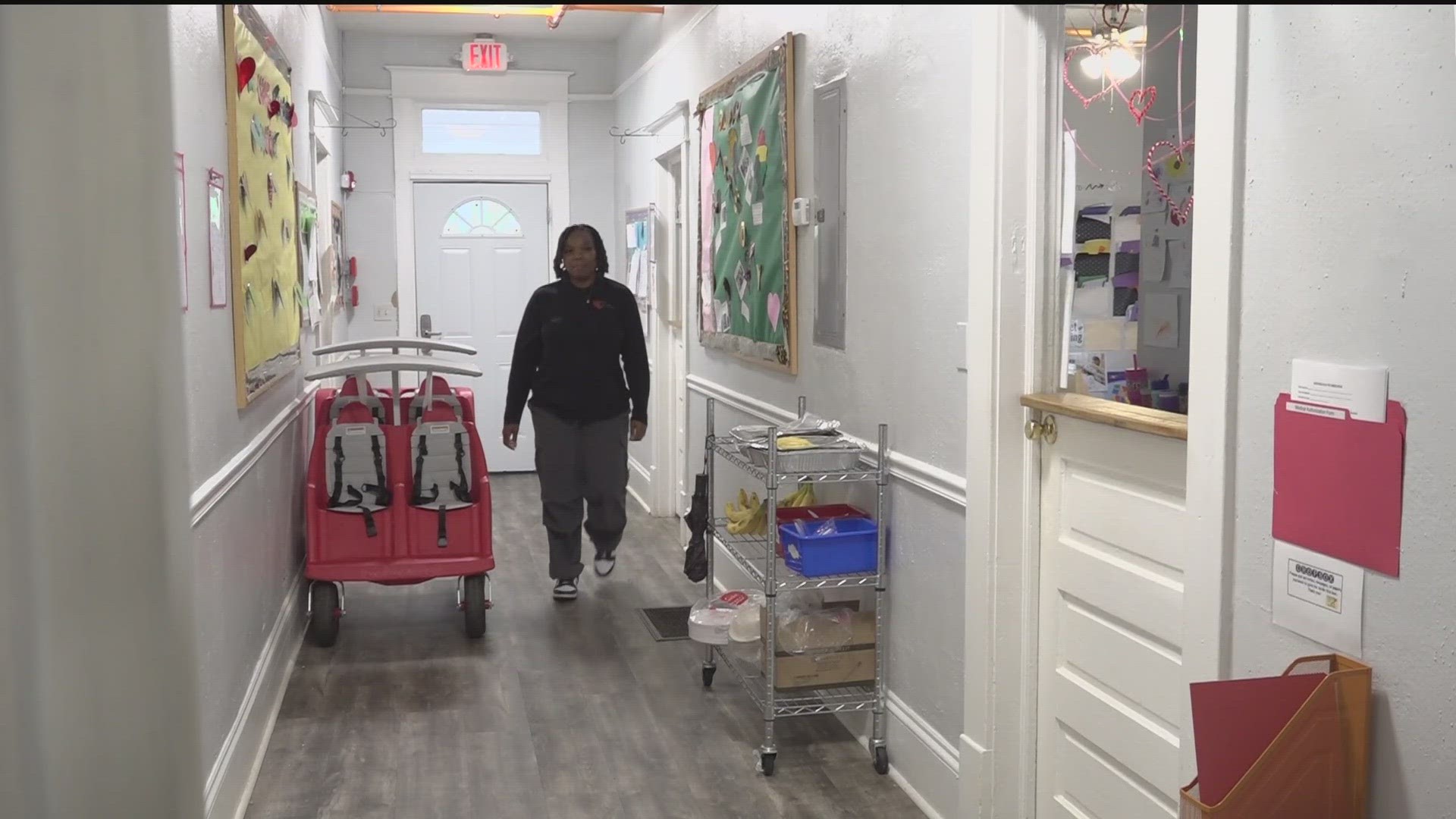ATLANTA — Child care centers who provide care to low-income children in metro Atlanta said they are struggling to pay their own bills amid issues with the state's payment system.
The problems, Jamarrion Tabor said, began when the state switched systems last fall.
The Georgia Department of Early Care and Learning (DECAL) confirmed it took over the producer management function of the Childcare and Parent Services (CAPS) program in November. That role was previously operated by a third-party vendor.
The CAPS program is administered by DECAL and helps cover the cost of care for low-income families in the state. There are more than 73,000 kids who currently receive CAPS, according to the department, with 2,750 centers participating in Georgia.
Tabor, who owns five child care centers in locations like Powder Springs and Douglasville, said more than 300 of the children she serves receive CAPS, but reimbursement from the state for those scholarships has been a struggle.
"It's just been a total mess since they have switched systems," Tabor said.
"Some centers are having issues with their statements," she said. "Some centers are not receiving any funds. Some centers are receiving half of their funds," adding that it's been "hit or miss" with some centers having no issues.
April Garrison, who operates Future Scholars and Friends Academy in Newnan, is among those experiencing problems. She said she's only recently regained access to the system providers rely on to invoice the state.
"I just was able to get into the system not even two weeks ago to do billing from December all the way up to February," Garrison shared. "And then I get an email saying the password changed. Who changed the password? It doesn't even make sense at this point."
Meanwhile, Lauren Davis, who runs iCare Child Development Center, said she's waiting on thousands from the state in CAPS payments, despite the fact she no longer has current CAPS students in her two centers. The impact of the back and forth trying to get the financial issues corrected, she said, is detrimental to centers offering quality child care.
"Anybody who runs a business knows," Davis said, "If you're not getting paid for your services, it's a huge budget cut. So that can simply mean having to cut back on teachers, not being able to fill your class."
The waiting could impact costs ranging from supplies and materials, Davis said, to big decisions about whether some centers are able to stay open.
"We can be understanding," she added. "But we just want to know that eventually that we're are going to receive those payments."
11Alive obtained a copy of a letter sent to child care centers from DECAL's commissioner on Feb. 19. That letter acknowledges and apologized for the recent challenges since the November transition, while asking providers for patience and understanding.
"We are committed to working through these initial glitches because, ultimately, this new system will enable us to serve you more effectively and efficiently," Commissioner Amy Jacobs wrote.
DECAL also responded to 11Alive's questions about the impact statewide. A spokesperson confirmed that as of March 5, there have been 13,257 incidents reported related to the new system. 11,438 incidents, the department said, have been resolved.
But when 11Alive asked how many centers are waiting for outstanding CAPS payments from the state, a spokesperson said it's "difficult to give a number," citing the following:
"Each week we make a payment to roughly 2,750 child care providers for service week(s) they have billed CAPS for. A handful of those payments need to be held for one reason or another to confirm their accuracy. In addition, a handful of payments are rejected each week, for example due to a closed bank account. There are also some limited circumstances where we are experiencing some system issues that impact payments to child care providers who fall into one of those limited circumstances, for example a center undergoing a change in ownership. The more common issue that child care providers are experiencing with their payments is ensuring all correct scholarships and service weeks are available for them to bill on."
DECAL said a team is "working around the clock" to resolve all issues, and when asked for a timeline for the fixes, 11Alive was told "as soon as possible." The department reiterated many of the issues are already resolved and the state has "continued making weekly payments to child care providers throughout this process." Yet, the department also acknowledged a new system may mean other issues could arise in the future.
Child care owners meanwhile said they've tried to be understanding amid the transition, but the problems which persist are having a big impact on their ability to pay staff, their mortgage and other bills. Tabor and others have been dipping into savings, as a result, and thus are seeking further assurance from the state.
"The only thing that they can tell us is that we're working on it," Tabor said. "Well, we can't tell our mortgage companies that we're working on it. We can't tell our utilities that we're working on it, and we definitely can't tell all these teachers that show up for these students every day that we're working on it if we can't pay them."

